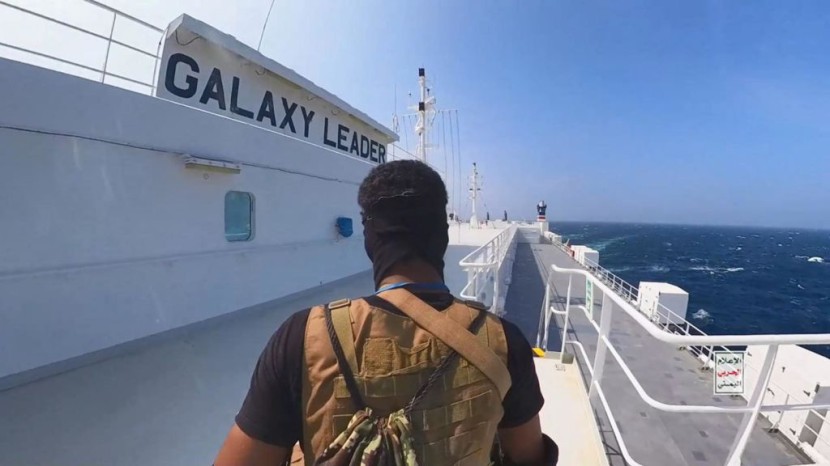Iran has denied demands from the United States and the United Kingdom's demands that it cease its backing of Houthi rebel strikes on Israeli-affiliated ships in the Red Sea as its military sent a warship to the strategic commerce route.
On Monday, January 1, the Alborz destroyer, which is part of the Iranian navy's 94th flotilla, reached the Red Sea after passing through the Bab-el-Mandeb strait.
During their meeting, Ali Akbar Ahmadian, secretary of Iran's Supreme National Security Council (SNSC), lauded the rebel forces' actions against "Zionist aggression" and met with Mohammed Abdulsalam, spokesman for the Houthi movement.
The US military announced on Sunday, December 31, that its helicopters had destroyed three Houthi ships and killed ten militants following an altercation in the middle of the Red Sea. This further heightens tensions between the two countries. The Houthis, backed by Iran, are eager to show their support for Hamas during the current conflict in the Gaza Strip.

Supporting 'Palestinian Resistance Movements'
In the most recent of over 20 assaults, Houthi ships targeted a Maersk shipping firm commercial ship, prompting some shipping companies to entirely avoid the Red Sea route.
If the Houthis do not stop attacking Israeli-linked commercial ships, the UK and the US are thinking of formally warning them that they will target military sites in Yemen along the Red Sea coast, as reported by The Guardian.
For more than three weeks, the Houthis have been attacking the Red Sea. They have threatened to keep attacking until Israel lets full humanitarian relief supplies into Gaza.
In the case that Washington was to invade Yemen, the head of the Houthi militia in Yemen, Abdulmalik al-Houthi, has already threatened that his troops would assault American warships in the Red Sea, the Bab al-Mandab Strait, and the Gulf of Aden.
British foreign minister David Cameron phoned his Iranian counterpart Hossein Amir-Abdollahian on Sunday to inform him that Tehran was partially to blame for the strikes, hours before a high-level conference between Iran and the Houthis was scheduled to take place.
"Palestinian resistance movements" have Tehran's full support, according to Iranian foreign ministry spokesman Nasser Kanaani, who also said that there was no basis to charge Iran. He went on to criticize Cameron's involvement. He added, "Iran proudly announces that it supports Palestinian resistance movements for the liberation of their land."
Countering Houthis' Attacks
The Houthis have little chance of defeating the US fleet despite Iranian backing. The militias have taken over parts of Yemen, including the capital Sana'a, and the crucial port of Hodeidah, but the government of Yemen, which is headquartered in the south and has Saudi support and United Nations recognition, is opposed to the assaults on ships.
Last month, the US launched Operation Prosperity Guardian, a multinational force to safeguard the sea routes.
The UK is the only Western nation that has sent ships, even if several others have sent a small number of sailors. Both Saudi Arabia and the United Arab Emirates refrained from making public announcements about their coalition membership, perhaps because of the political concerns associated with being seen as supporting Israel.








